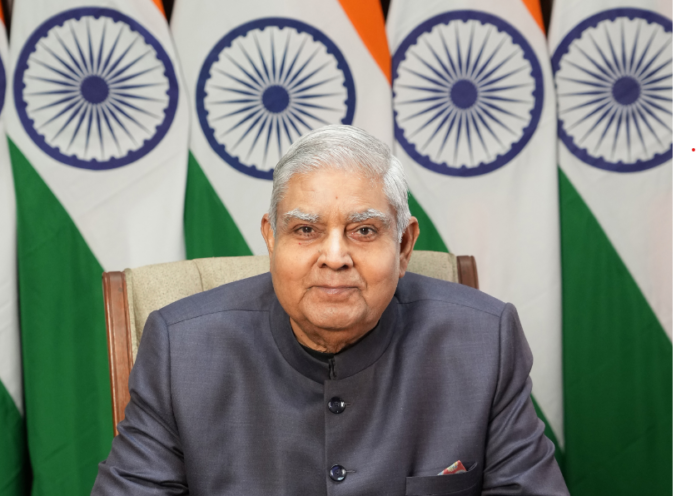Rajya Sabha Deputy Chairman Harivansh on Thursday dismissed a no-confidence motion filed by opposition members against Vice President Jagdeep Dhankhar, citing it as an act of impropriety and severely flawed. Harivansh described the notice as hasty, unfounded, and aimed at tarnishing the reputation of the Vice President, who also serves as the Rajya Sabha Chairman.
The ruling, tabled in the House by Rajya Sabha Secretary-General PC Mody, stated that the motion was an attempt to damage the credibility of the high constitutional office and “deserves to be and is hereby dismissed.” At least 60 opposition members had signed the December 10 notice, alleging that Dhankhar was “biased” and unworthy of their trust.
Harivansh termed the motion a “misadventure” designed to trivialize and demean the Vice President’s office. “The gravity of this personally targeted notice is bereft of facts and aimed at securing publicity,” he stated. He also expressed concern about the impact of such actions on the prestige of Parliament and its members.
As Vice President Dhankhar recused himself from handling the matter, the responsibility fell to the Deputy Chairman.
In response to the dismissal, Congress General Secretary Jairam Ramesh criticized Harivansh, accusing him of misrepresenting facts in his ruling. Ramesh pointed to a reference in the ruling to remarks he had made during a press conference on December 12.
“The ruling given by the Deputy Chairman of the Rajya Sabha today on the motion of no confidence in the Chairman… contains a reference to some remarks made by me… This reference takes liberties with facts — to put it mildly,” Ramesh wrote on X (formerly Twitter).
He also revealed details of a letter he had written to Dhankhar on December 14, which Dhankhar reportedly agreed with and urged him to “bury” during conversations on December 17 and 18. Ramesh claimed that his letter’s contents had been misrepresented in Harivansh’s ruling, forcing him to make the letter public.
The incident has deepened tensions between opposition parties and the government, with the opposition accusing the ruling establishment of undermining parliamentary norms.



